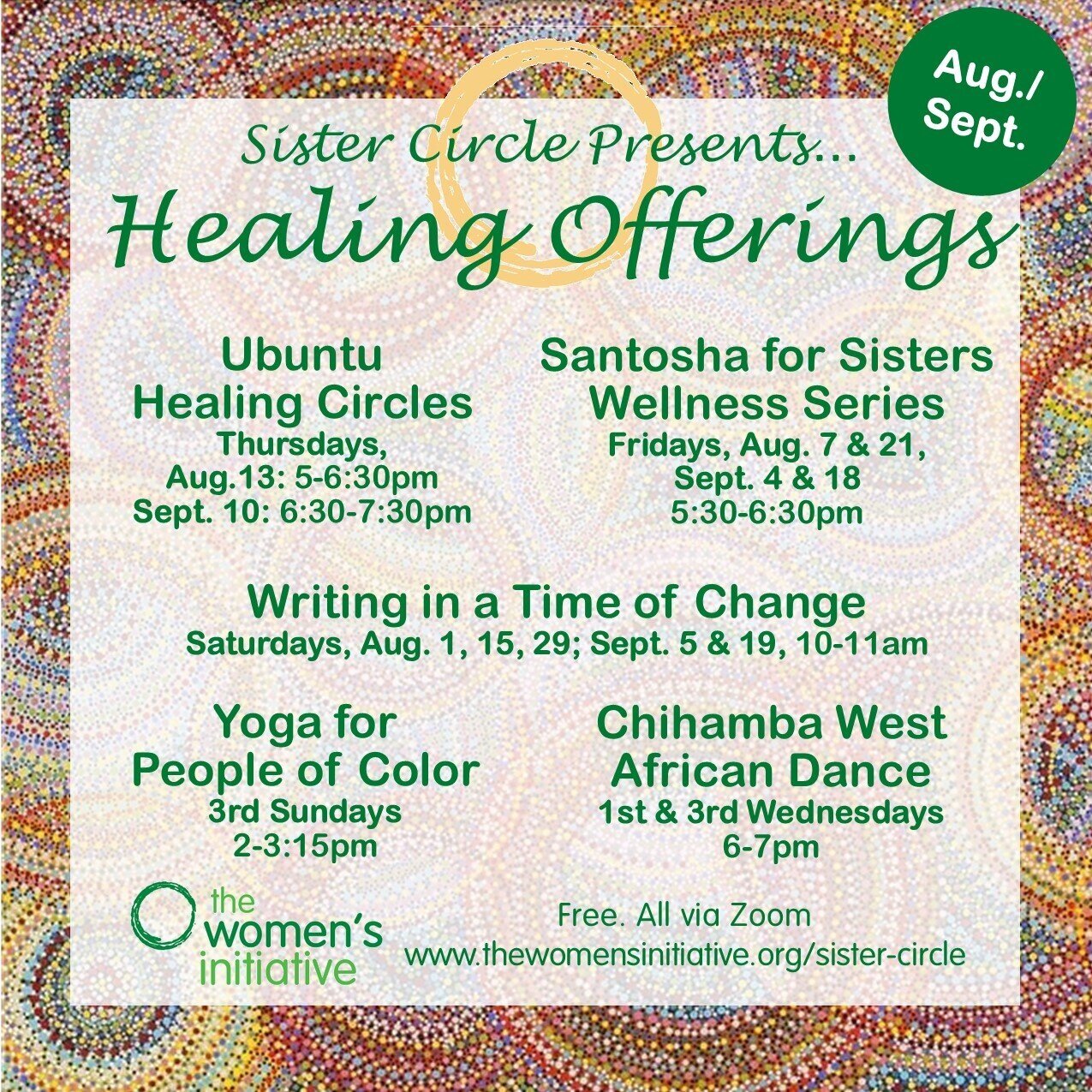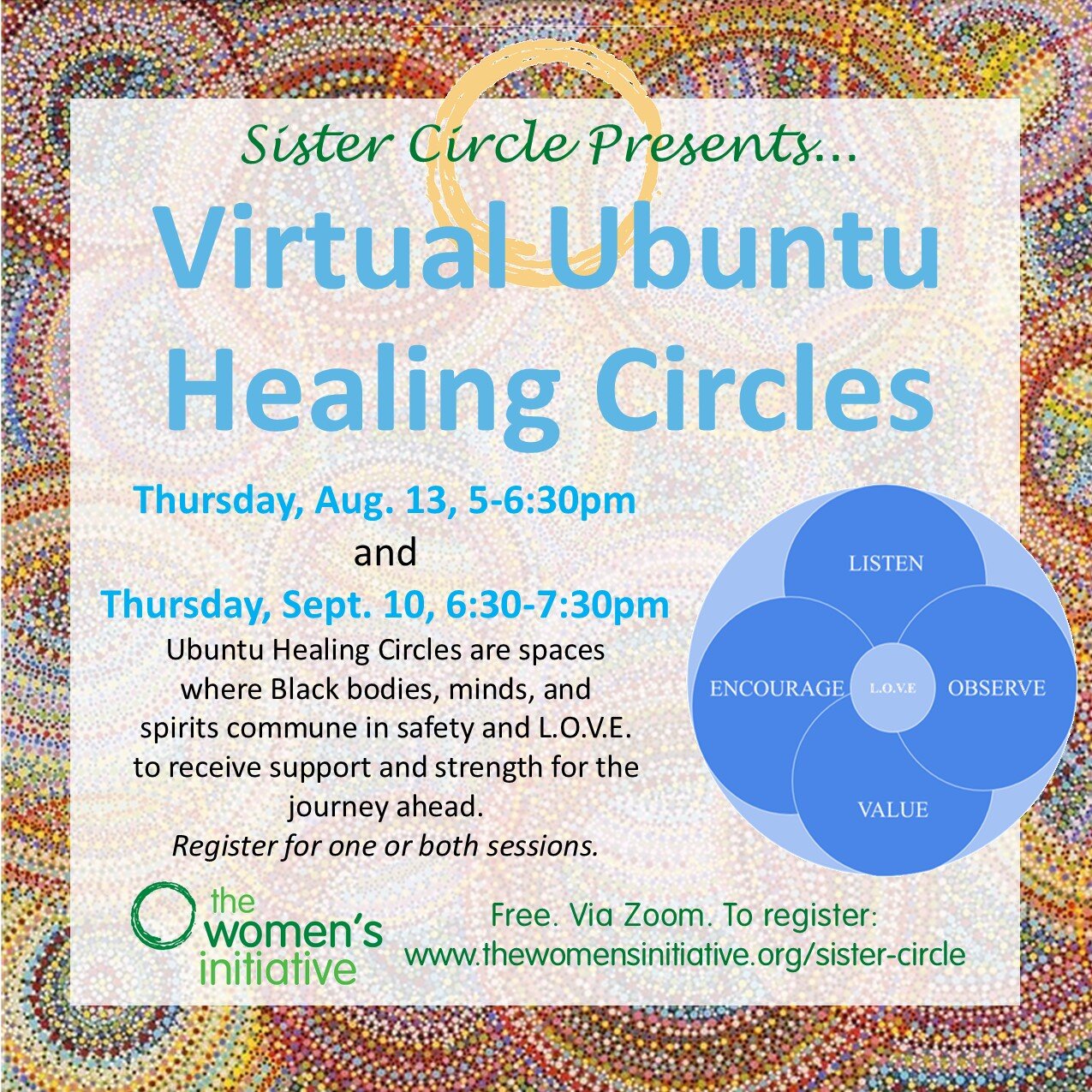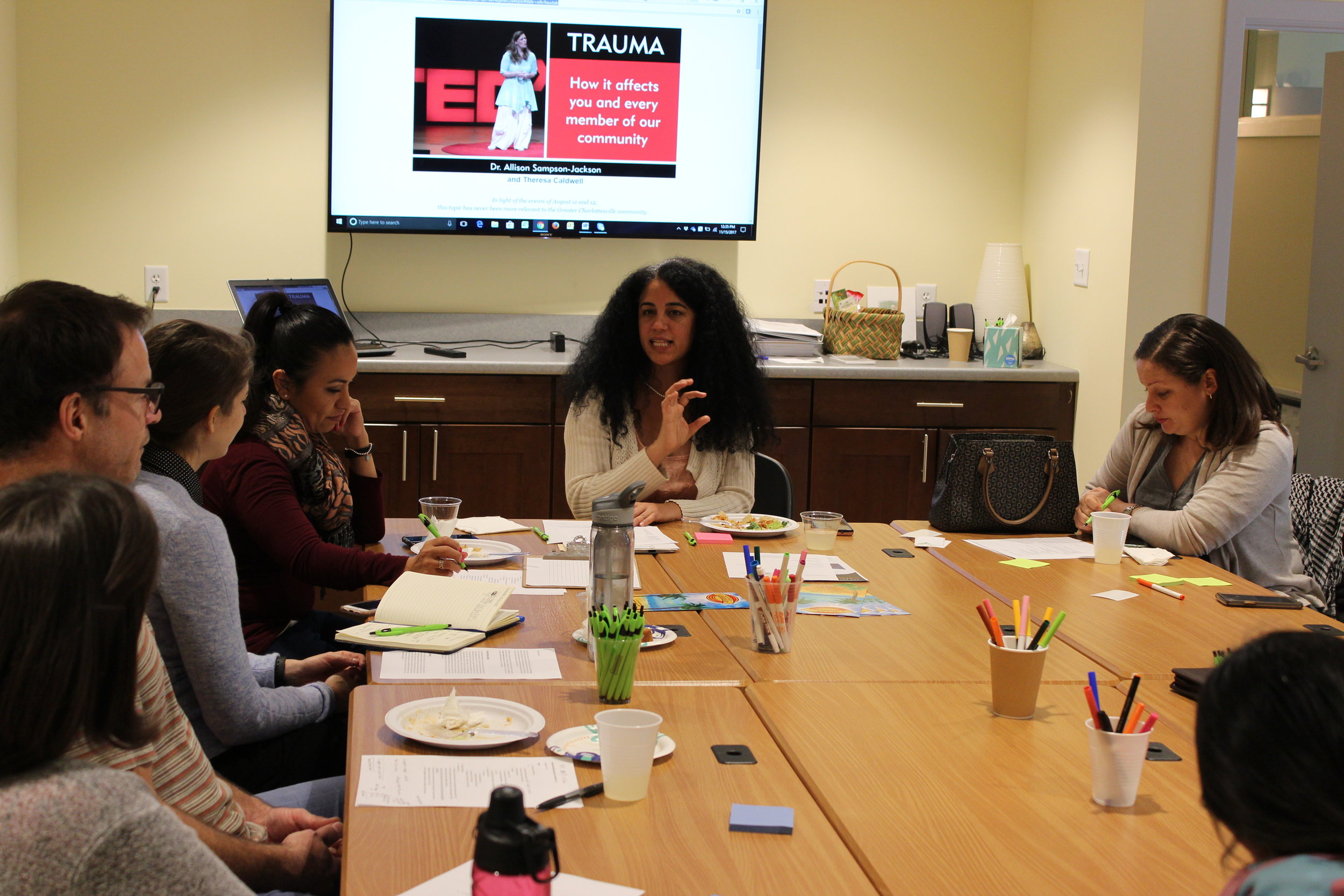“Caring for myself is not self-indulgence, it is self-preservation, and that is an act of political warfare.”
Melody Pannell leads workshops that teach resilience skills to the community.
The pandemic’s toll on our community’s mental health has been enormous. And for those impacted by systemic oppression, the effect has been even greater, as isolation, grief, anxiety and economic insecurity combine with the ongoing impact of racial trauma. To support individual and community resilience in this challenging time, The Women’s Initiative is offering free educational workshops that teach vital self-care and stress management skills, and that connect participants to resources within themselves and their community to support well-being.
The workshops are being led by new staff Resilience Educator and Mental Health Therapist Melody Pannell, MSW, M.Div., MACE, who comes to The Women’s Initiative with vast experience in teaching resilience, healing for communities of color, and “radical self-care.”
“My plan is to help individuals with self-care plans and practices, and also to educate agencies to center self-care in their policies and practices,” Pannell said. “I want people to be aware of how trauma affects the body—to learn about compassion fatigue, trauma stewardship, and recognizing the different types of trauma that happen for black and brown individuals—trauma that has been passed down multigenerationally, and how it needs to be released and discussed.”
These educational workshops can be tailored for the general public or specific community organizations. Furthermore they can be designed for agency leaders looking to build capacity for resiliency or for caregivers who need support in daily programs and services. They can be formatted as a 1-hour presentation, 2-3 hour workshop, or staff retreat. Pannell is also available to share her knowledge of trauma and resilience at community events and panels. Reach out to mpannell@thewomensinitiative.org to learn more.
Pannell’s passion for trauma stewardship, racial healing, inclusion and diversity are rooted in having grown up biracial in Harlem, New York. She has most recently worked in Harrisonburg, Bridgewater and Richmond. In Charlottesville, she is involved in the leadership of the Coming to the Table group, where descendants of Thomas Jefferson and Sally Hemings have worked on racial reconciliation and healing.
“I care deeply about the history, the future and the well-being of Charlottesville as a community,” she said.





